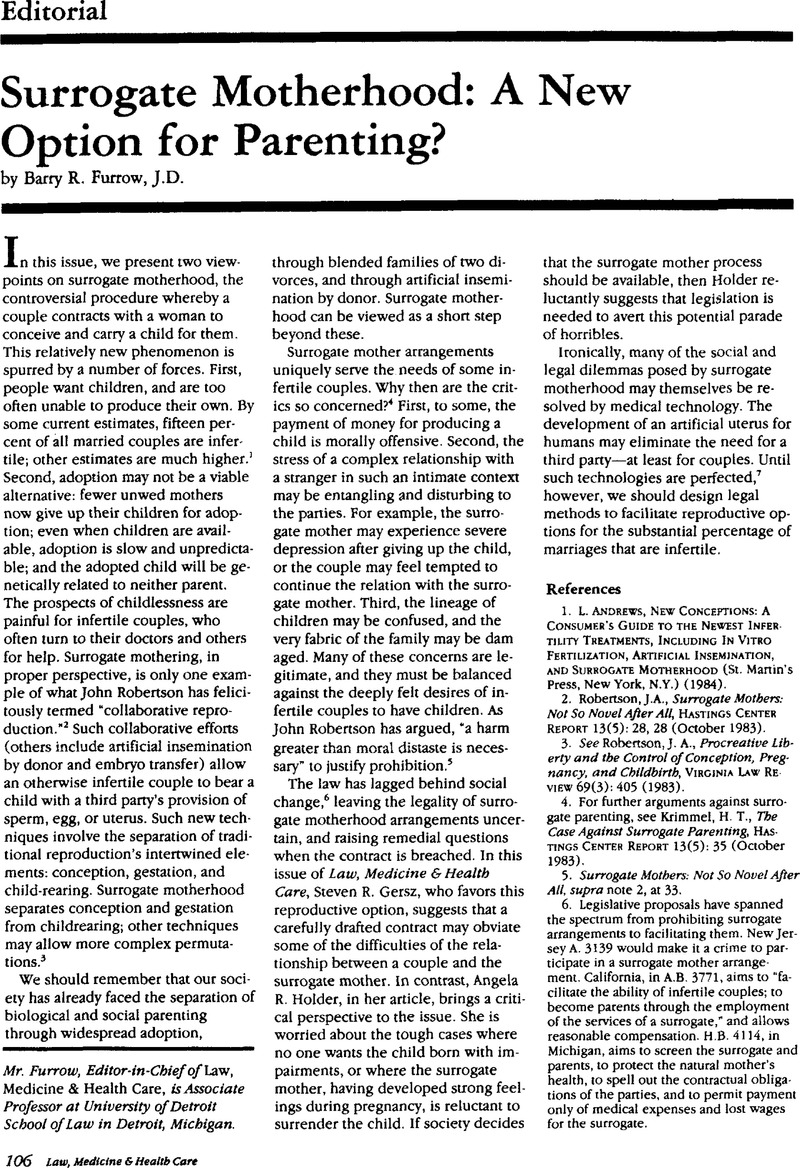Crossref Citations
This article has been cited by the following publications. This list is generated based on data provided by Crossref.
Perry, Clifton
1988.
Surrogate contracts: Contractual and constitutional conundrums in the baby “M” case.
Journal of Legal Medicine,
Vol. 9,
Issue. 1,
p.
105.



